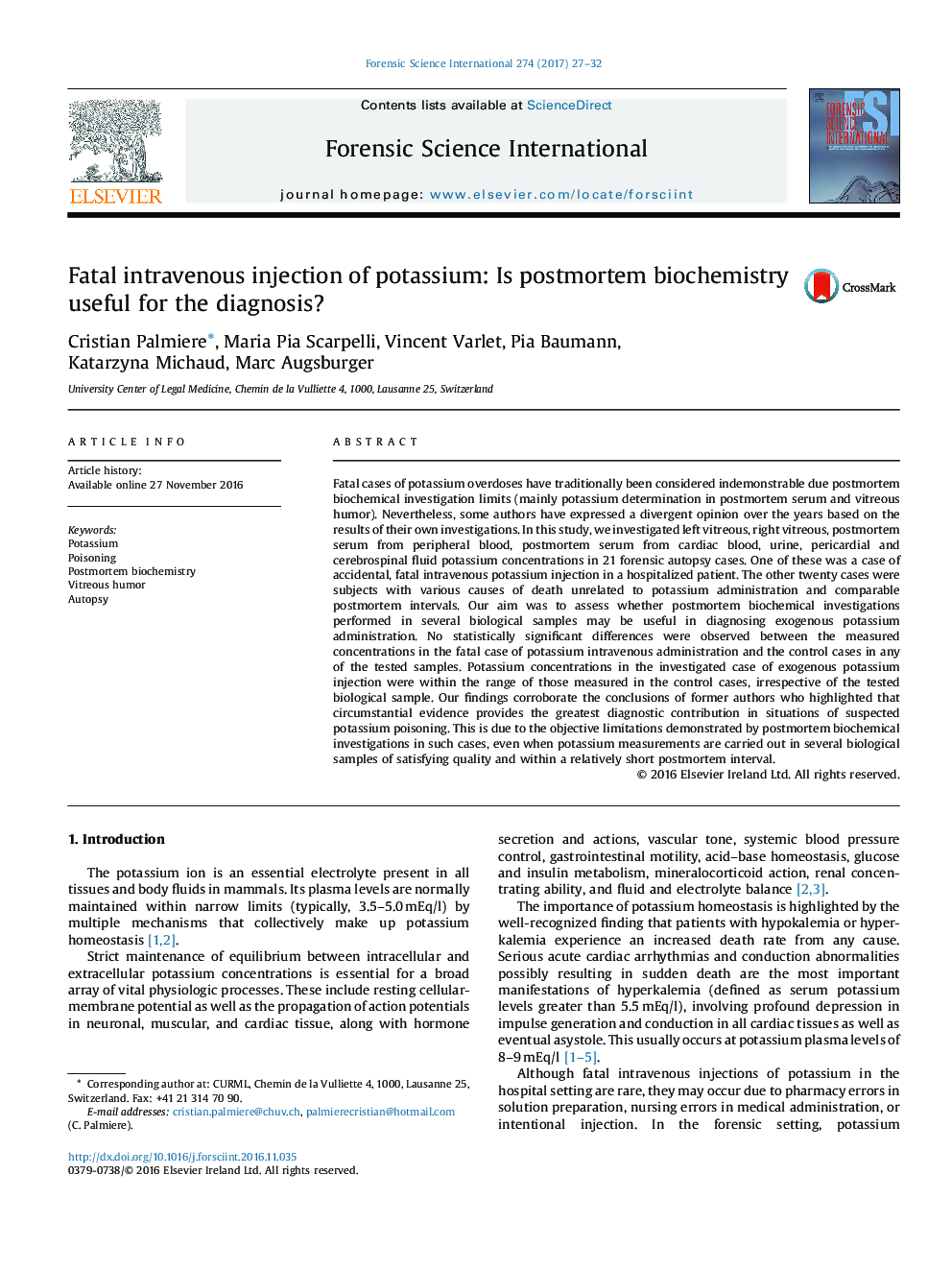| کد مقاله | کد نشریه | سال انتشار | مقاله انگلیسی | نسخه تمام متن |
|---|---|---|---|---|
| 6462484 | 1421976 | 2017 | 6 صفحه PDF | دانلود رایگان |
- Potassium overdoses are considered indemonstrable due postmortem biochemistry limits.
- Divergent opinions on this topic have been formulated over the years.
- Potassium determination in several specimens does not provide any additional information.
- Circumstantial evidence in such cases provides the greatest diagnostic contribution.
Fatal cases of potassium overdoses have traditionally been considered indemonstrable due postmortem biochemical investigation limits (mainly potassium determination in postmortem serum and vitreous humor). Nevertheless, some authors have expressed a divergent opinion over the years based on the results of their own investigations. In this study, we investigated left vitreous, right vitreous, postmortem serum from peripheral blood, postmortem serum from cardiac blood, urine, pericardial and cerebrospinal fluid potassium concentrations in 21 forensic autopsy cases. One of these was a case of accidental, fatal intravenous potassium injection in a hospitalized patient. The other twenty cases were subjects with various causes of death unrelated to potassium administration and comparable postmortem intervals. Our aim was to assess whether postmortem biochemical investigations performed in several biological samples may be useful in diagnosing exogenous potassium administration. No statistically significant differences were observed between the measured concentrations in the fatal case of potassium intravenous administration and the control cases in any of the tested samples. Potassium concentrations in the investigated case of exogenous potassium injection were within the range of those measured in the control cases, irrespective of the tested biological sample. Our findings corroborate the conclusions of former authors who highlighted that circumstantial evidence provides the greatest diagnostic contribution in situations of suspected potassium poisoning. This is due to the objective limitations demonstrated by postmortem biochemical investigations in such cases, even when potassium measurements are carried out in several biological samples of satisfying quality and within a relatively short postmortem interval.
Journal: Forensic Science International - Volume 274, May 2017, Pages 27-32
